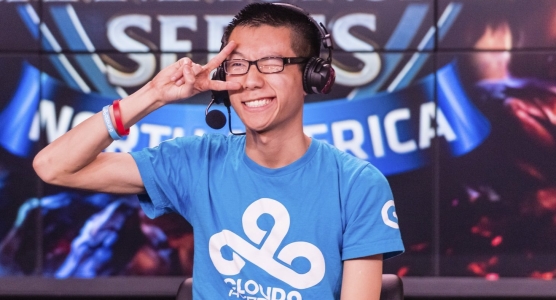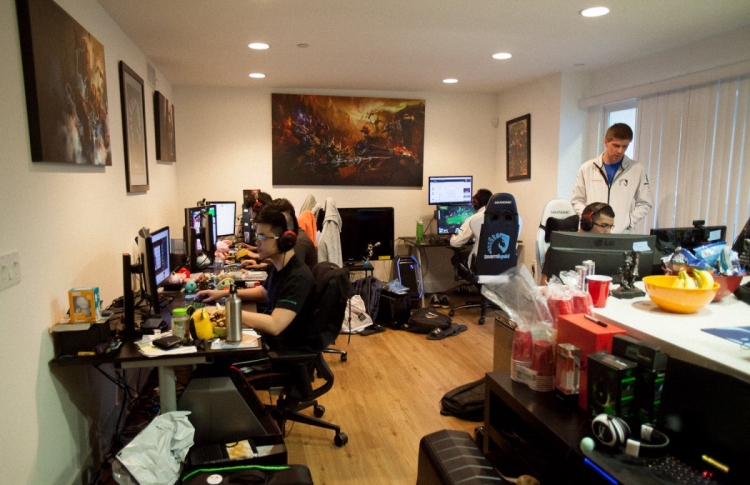The LCS games you watch today feature the highest quality League of Legends gameplay anybody has ever seen. Professional players will be the first to admit that when they look back on the VODs from feature tournaments that took place a few years back, they can’t help but laugh. At that time they were still the best in the world; the top 0.01%, but nobody was even close to as good as even the lower tier players competing in today’s tournaments.
The caveman times of professional League of Legends featuring a lot of familiar names.
This is to be expected and encouraged in any sport. It is a clear sign of growth. The barrier to entry is rapidly growing taller and taller as the League of Legends player base becomes better and better at the game. Skills that once separated the great players from the average players just a couple seasons back now serve as a minimum requirement to compete.
Mechanics are becoming a commodity. We still have our exceptional players who remain a step above the average professional League of Legends player, but for the most part mechanical ability has a high baseline. Every team has at least one player who is capable of the occasional outplay. Even the worst players on the lowest ranked teams find themselves dominating solo-queue opponents at the highest level.
Aspiring League of Legends professionals must note this trend and focus their efforts on developing skills that make them more valuable to an LCS roster. The most sought after skills in the pro scene right now are shot callers, and players who lead by example.
Focusing Your Team’s Mechanics: Shot Calling

Cloud 9 is the most obvious example of a team before and after shot calling. Team Dignitas an unfortunate example of a team that’s never had great shot calling. H2K is entering its second season strong because of a strong team identity built around macro-level play that enables each player to shot call in some form.
A team without strong shot calling struggles to dictate the pace of the game. There never seems to be a clear objective or win condition all five players share together. We’ve seen it time and time again any time a so called “super team” is formed. An ultra-talented group of highly mechanical players looks promising on paper, but doesn’t always translate into a successful team. These ‘too good to be true’ lineups require a couple months of practicing to form a team identity, the organization makes another roster adjustment to shake up the slumping team, or the team fizzles out.
If I were a Challenger player with dreams of playing in the LCS, I would be studying the best macro-level League of Legends teams every single day. You can’t call the shots if you can’t read the game at a high level. Macro play, not micro play, is what separates good LCS teams from average teams. I would aim to play League of Legends alone as little as possible. Communication is a skill, and skills are like muscles. The more your use them the more they will grow.
Shot calling will certainly be uncomfortable, and you will be bad at it in the beginning. Duo with everyone. Play ranked 5’s. Enter as many small tournaments as you can. Put into practice all of the concepts you are studying and watch as your in-game communication grows stronger as you put in more reps.
You May Like
Leaders Are Responsible for Team Environment
The “KaSing” effect was toted as one of the key reasons H2K became a successful team.
Last year European support player Raymond “KaSing” Tsang made his name known as a top tier support playing for H2K in the EU LCS. Interestingly enough, it wasn’t KaSing’s mechanics alone that proved he deserved to be mentioned in the same breath as other top Western support players. It was his seemingly infectious positivity and desire to create a healthy team environment.
The business world has known about the concept of culture for a long time now. Massively successful entrepreneurs such as Tony Hsieh (of Zappos fame) have stressed how important a positive, enjoyable work environment is. You are more likely to perform and feel invested in your companies success when you find yourself in a constructive work environment. This absolutely applies to professional gaming, and is at least equally important.

Perhaps even more important. Take a moment to picture the average League of Legends gaming house. You’re looking at five players aged 17-23, a coach around the same age, and a couple of analysts or support staff. That makes for a volatile mix of natural insecurity, ego, and individual opinion confined in such a small space where player will spend the majority of their day, every day.
Teams already know this. Sports psychologists are increasingly common among top organizations with the budget to afford them. Maintaining morale is vital to a healthy team environment, and in turn, success.
Aspiring pro players should take note of the KaSing effect. KaSing has developed into a cornerstone player that teams are willing to build around because he has shown to be the complete package. A player who is able to better his team on and off the rift is incredibly valuable to any LCS team.
Complete Players Wanted
As the collective skill cap of the best League of Legends players continues to rise it will be harder to stand out as a player. We are beginning to witness first-hand how vital clear communication is in the LCS. Amateur players looking to turn pro should be aware of how they can drastically increase their market value by becoming a complete player capable of leading their team to a championship.
















